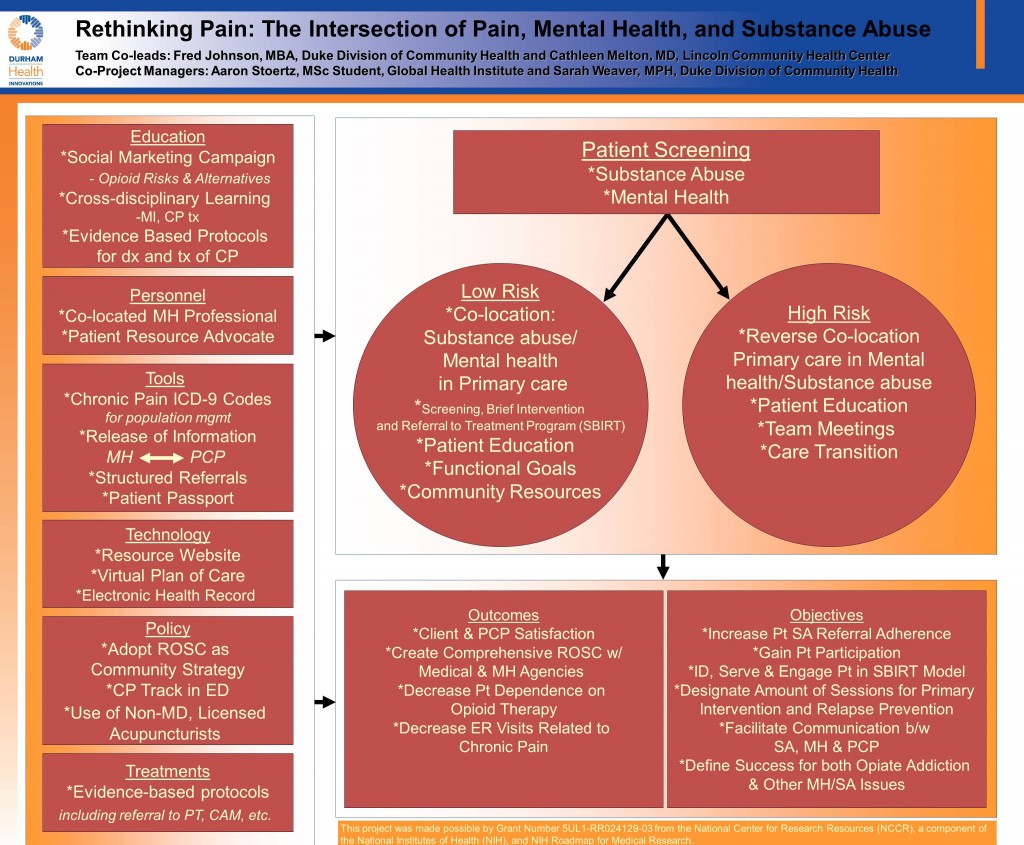Project Title:
Rethinking Pain: Collaborative Approaches to Address the Relationship of Pain, Substance Abuse, and Psychiatric Illness
Project Co-Leads:
Fred Johnson, MBA, Duke Division of Community Health
Cathleen Melton, MD, Lincoln Community Health Center
Proposal Abstract:
We will develop a business plan to implement and sustain a coordinated System of Care for Durham residents with chronic pain who are at-risk for substance abuse of any kind. For those at low-risk for substance abuse, we will co-locate a substance abuse specialist inside the primary care clinic.
For patients at high-risk for substance abuse, the provider will be connected, both electronically and in person, to a multidisciplinary team including mental health providers and substance abuse specialists that review and create a plan of care for the provider-patient team.
We will also develop practitioner education materials and tools to better prepare and educate primary care, substance abuse, specialist and emergency department providers in treatment strategies
for chronic pain patients that include avoidance of controlled substances when possible. The education program will become the mechanism to establishing an appropriate flow of referrals into our multidisciplinary System of Care team.
Key Durham community outcomes include increased ability for primary care providers to manage chronic pain and substance abuse, reduction in ED encounters for pain, an overall reduction in the number of accidental deaths due to overdose of prescription drugs, reduction in hospital admissions for accidental poisonings involving prescription drugs, reduction in the number of people using methadone clinic due to opioid addiction and a reduction in the overall number of opoid prescriptions.
Rethinking Pain Final Report [PDF]
Grant
DHI partner BAART Received Kate B. Reynolds grant to put Substance Abuse Counselor in Adult Medicine in Lincoln Community Health Center for 1 year beginning July 2010. BAART was awarded an extension for two years to continue counseling and to add a pharmacist to work with pain patients receiving opiates.
